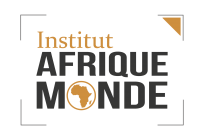Under the direction of Camille Kuyu
Editions Espérance, Centre d’Etudes et des Recherches pour le Développement Durable | 160 p. | 20,00 €
Published in September 2019
Recalling that sustainable development refers to the “satisfaction of present needs without compromising the ability of future generations to satisfy theirs”, Professor Camille Kuyu specifies that, if a new mode of regulation of global public goods is to be established at the international level, it is first up to each State to “define a societal project” that integrates these concerns.
This is where the States of the South must not only “catch up with the industrial world” but “invent together a common future on a planet with limited resources”.
In September 2015, the UN member states approved the 17 Sustainable Development Goals (SDGs), which are themselves operational extensions of the Millennium Development Goals (MDGs).
The Centre for Sustainable Development Studies and Research (CERDDU), which is part of CERDI, aims to help implement sustainable development in the South. More specifically, it aims to be a stakeholder in research on the achievement of the SDGs in the Democratic Republic of Congo within the framework of the United Nations 2015-2030 programme.
In this book, Professor Camille Kuyu coordinates the research work of several authors around two major themes that partially cover the field of the 17 SDGs: youth and gender inequality, and education.
On the first theme, “youth and gender inequalities”, Camille Kuyu shows, in Gender inequalities as obstacles to sustainable development, that not only is gender equality a “fundamental right of individuals”, but that it also makes it possible to accelerate the reduction of poverty and the achievement of the sustainable development goals (the UNDP estimates, in its 2016 report, that sub-Saharan Africa loses 95 billion dollars each year due to gender inequalities).
Of course, it notes that, despite formal legal advances, the inclusion of a “gender approach” in the development of national strategies remains imperfect and that the mechanisms for combating violence against women are insufficient. To be convinced of this, one need only note the numerous inequalities noted by the author:
- Inequalities in daily life and the management of sexuality (unequal status of boys and girls [forced marriages, etc.] and of men and women),
- Violence against women (gender-based violence, especially in armed conflicts or in more symbolic areas such as particularly trivial song lyrics),
- Inequalities in the field of health (high exposure of women to HIV/AIDS, heavy impact of environmental degradation on women’s work and health),
- Inequalities in access to economic resources and representation (low pay, unrewarding work, under-representation in political and leadership bodies).
In conclusion, the author insists on the need to expose injustices by recognising that, in a context of scarce resources, the choices and arbitrations in decisions on education and health have a considerable ethical dimension.
Daniel Dormoy, in Les jeunes dans les objectifs du développement durable, introduces the notion of “international youth law”. Obviously, given the growing weight of young people, especially in African populations, it is not surprising that the international agenda is taking them increasingly into account, in particular by involving them in the development of the SDGs, and then in their implementation. This has been a long road, as the UN Charter does not formally contain the words “youth” or “young people”.
That said, there are now many sustainable development strategy documents devoted to young people by states, international structures and NGOs.
More specifically, the author details all the Congolese commitments in this area. In keeping with the image of this vast country, we note the existence of the Collectif des Organisations des Jeunes Solidaires du Congo-Kinshasa (COJESKI-RDC), a national network of 340 youth organisations!
Speaking about Congolese youth and their participation in the country’s development, Philémon Mukendi paints a sensitive portrait of the territories of Congolese youth and concludes that they are not in a position to influence the debate on sustainable development.
He notes that “young people are disoriented in a society in crisis” (a society where “studies and paid work no longer necessarily serve as a reference”).
And three issues emerge from this sad state of affairs:
-
- a sociological and political issue: “youth as heir and continuator of society”,
- a socio-psychological issue: “recreating trust not only between young people and society but also between young people and themselves”,
- a socio-economic issue: “a professional occupation does not only provide income […] it also allows one to participate in collective life by contributing to the creation of national wealth. It also enables people to learn values and behaviours that are useful for civic engagement”.
We can only agree with the author when he considers that the recovery of the country and a “change of mentality and behaviour” are absolute necessities. So what to do? Pursue the same national objectives of “more resolute involvement of the state” (transformation of the economy, recovery of the culture, cleaning up political mores, etc.). A vast programme…
Now, the second theme “education” puts online the article Education for the person and the relationship between sexuality and religion. De l’importance d’un enseignement critique du fait religieux by René Nouailhat. Of course, “the religious factor is part of different stages of a person’s development”. In fact, the author refers to an “integral education” and believes that “education in religion concerns the education of the whole person, in his or her body, mind and relationship to others”. The links between sex and religion are profound insofar as sexuality is “the bearer of fantasies that are largely deployed in the religious sphere”, and where “religions have powerfully codified, and in a very often discriminatory and enslaving way, the relationship between men and women”. However, it is also noted that religion, insofar as it manages to overcome narrow and local political and cultural considerations, can be a powerful lever for liberation and openness. Moreover, the author hopes for “the indispensable involvement of religious confessions”.
Julien Kilanga, in Le rôle social de l’Université auprès des jeunes africains (The social role of the university among young Africans), states some sensitive truths that cannot be denied. Of course the university must be at the service of the human community, in particular the youth. Of course the Congolese University, which is in crisis, must reform itself and “implement the conditions for its revitalisation”. There is no doubt that it must be “a University of development” which must contribute to the constant improvement of the quality of life of people in their overall environment.
The author concludes by saying that “improving the quality of training and research can only be achieved through incisive changes and restructuring”.
è In the epilogue, Moussa Mankan Traoré develops in Démocratie et développement durable en Afrique francophone, Eléments pour un débat (Democracy and sustainable development in French-speaking Africa, Elements for a debate) the fact that the establishment of a democracy is in no way an obstacle to the desire to favour sustainable development. In fact, and to reconcile all points of view, democracy would be “more of a method than an end”, which would allow for better organisation and improvement of everyone’s life with a view to greater freedom. This would correspond perfectly to the goals of sustainable development.
In fact, “it is not enough to make countries democratic… they must be made liveable”.
In the particular case of the Democratic Republic of Congo, it is obvious – but is it not the same for all other countries? – that one of the ways to meet the challenge of sustainable development is to make “massive investments in youth and education”. It is trite to say that healthy, well-educated young people are in a position to take up “decent jobs” and thus best carry the future of their country. And the level of public expenditure devoted to these two areas is an important subject, but less so than the quality and genuine voluntarism characterising the relevant public policies. Otherwise, the famous ‘demographic dividend’ will be just another sinister illusion.
Of course, we can always count on aid from the developed countries (of the 0.7% of their GDP expected, between 0.15% and 0.20% should go to the least developed countries), but sustained and significant internal efforts must be made by the Democratic Republic of Congo if it wants to achieve the status of an emerging country in 2030. The list of implementation points for these efforts is fairly standard: ambitious health and education programmes, “coherent and sustainable long-term” financing plans, and a very firm focus on security, governance and taxation in order to “release more internal resources”. This last aspect of reality is important: not expecting too much from others, but being able to release enough resources internally (after all, the DRC is a country with considerable resources) to engage in an autonomous, effective and independent policy of sustainable development.
This book is to be commended for its honest and humanistic contribution to giving real impetus to the implementation of sustainable development programmes in the Democratic Republic of Congo. It is always easy to diagnose the ills affecting a country. It is less easy to outline genuine avenues for improvement and even less convenient to make effective recommendations. This last point is essential. It presupposes, at the appropriate level (in the bodies of power in general: government, assemblies, control structures), the concerted elaboration of contracts of objectives with action plans. The actions in question presuppose that relevant and verifiable indicators can be associated with them. Otherwise, we would obviously remain at the level of mere non-binding intentions.
The CERDDU could certainly be a driving force not only in terms of reflection and research, but also in terms of proposals for concrete action in the areas studied above.
Jean-Pierre Listre


